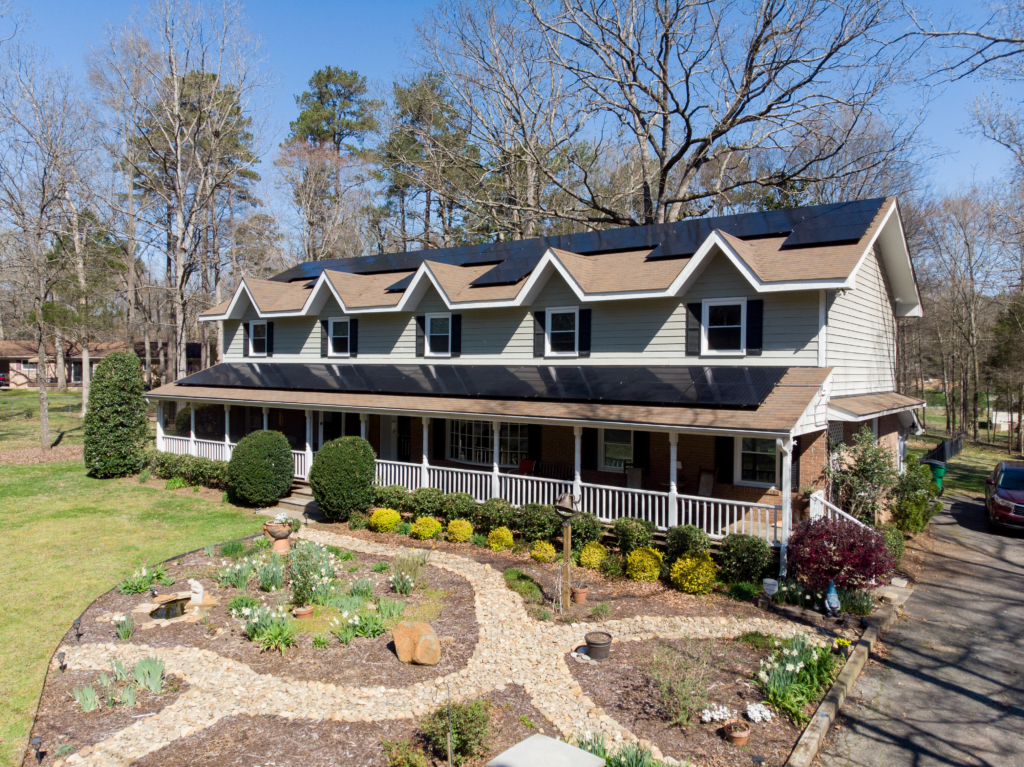Nonprofit Funding
Nonprofit Funding
Nonprofit funding is a solar investment that is made possible by the available tax incentives and solar’s pricing hedge against conventional energy prices. An investor can recapture the initial investment in less four years and enjoy the Solar Hedge for the remainder of the life of the system, which can be 30 to 40 years. Such an investment has been shown to yield an after-tax 8 to 13% Internal Rate of Return.
With a 25-year warranty on the panels and low weather volatility (+/- 3% annually), solar energy has a low-risk profile that is comparable to financial investments that yield returns only in the low single digits. By comparison, solar is spectacular!
The Solar Hedge
Using solar as a hedge against utility price volatility is highly valuable to businesses that are focused on managing long-term budgets. Combined with innovative financing options that further reduce upfront costs, solar has a new value proposition that makes good business sense.
REAP Grant
The Rural Energy for America Program (REAP) provides financial assistance to agricultural producers and rural small businesses in rural America to purchase, install, and construct renewable energy systems, make energy efficiency improvements to non-residential buildings and facilities, use renewable technologies that reduce energy consumption, and participate in energy audits and renewable energy development assistance.
Renewable energy projects for the Renewable Energy Systems and Energy Efficiency Improvement Guaranteed Loan and Grant Program include wind, solar, biomass and geothermal, and hydrogen derived from biomass or water using wind, solar, or geothermal energy sources. These grants are limited to 25% of a proposed project’s cost, and a loan guarantee may not exceed $25 million. The combined amount of a grant and loan guarantee must be at least $5,000 (with the grant portion at least $1,500) and may not exceed 75% of the project’s cost. In general, a minimum of 20% of the funds available for these incentives will be dedicated to grants of $20,000 or less.
In 2014, $12.3 million in grants and $56.4 million in loans was awarded.
Solar for Nonprofits
To learn more about nonprofit funding or how nonprofit organizations can go solar, reach out to Renu today for a consultation!

Frequently Asked Questions About Solar for Your Home or Nonprofit:
How exactly does going solar and a solar system itself work?
How many solar panels do I need for my home?
Roof-size/available space: When we look at the size of your roof and the space available, we gather data that tell us the maximum number of solar panels your home or site can hold and we even consider shading. We use a software “Suneye” which takes a 360 picture of your roof and we use this photo to determine if your home is a good candidate for solar.
Energy Usage: When we determine energy usage we look at your past electrical bills from over the course of a year to make sure your system isn’t too big or too small.
Your Budget: We take your budget seriously and most importantly, we want you to be satisfied with our services. We take your feedback on how much you want to spend so that we can size your system appropriately.
What is solar net-metering?
Does Duke Energy offer net-metering?
Curious about the cost of a home solar system?
Ready to Own Your Own Energy?
Speak to Us Today!
